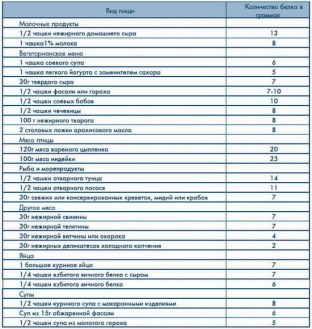Your kidneys – paired organs, shaped like beans, are located in the lumbar region (in women, as a rule, slightly lower than in men). The right kidney, as a rule, is located slightly lower than the left and has a slightly smaller size. These small organs, weighing only 100-200 g and only 10-12 cm long, manage to purify the blood passing through them 350 times a day (only 1500-1700 liters!) And remove substances that the body does not need along with urine. Healthy kidneys are necessary to maintain homeostasis in the body: pH levels, electrolyte balance (potassium, sodium, phosphate ratios). They also help regulate blood pressure, as they produce hormones that are responsible for the production of red blood cells. You can prevent or solve kidney problems through proper nutrition, about which estet-portal.
What causes kidney problems and what mistakes should not be made in nutritionKidney problems prevent them from functioning properly, which leads to a whole host of troubles, incl. diabetes, hypertension and heart disease. Common signs of unhealthy kidneys are:
- frequent urination;
- problems with urination;
- pain when urinating;
- burning when urinating;
- constant thirst;
- back pain.
Remember, the kidneys need water. Chronic dehydration – one of the common causes of kidney stones.What factors put kidney health at risk
Waste products that the kidneys help the body get rid of (through urine) include urea and uric acid, which are the result of the breakdown of proteins and nucleic acids, respectively.
- excessive protein intake increases the amount of urea, and an increase in the amount of uric acid is promoted by the metabolism of proteins and fructose;
- Kidney stones often result from a diet rich in processed fructose and other sugars that interfere with absorption of calcium and magnesium, phosphoric acid in sugary drinks also acidifies urine and promotes kidney stone formation;
- analgesics (aspirin, ibuprofen, naproxen, acetaminophen, NSAIDs) in excessive amounts or if taken regularly harm the kidneys, especially if taken with alcohol;
- Alcohol and smoking also reduce kidney function.
Based on the above, 3 rules of nutrition will help to avoid kidney problems:
- Restriction proteins. Do not abuse protein foods. The amount of protein needed by the body per day is limited to 40 & ndash; 70 grams per day. The body requires about 1 gram of protein per kilogram of lean body mass (i.e. your weight without fat).
- Limit your fructose to 25 grams per day or less (especially if you are insulin or leptin resistant).
- Drink fresh water. Give up lemonades and other sugary drinks in favor of pure water – it will benefit not only the kidneys, but the whole body.
Remember that "perfect" urine color – transparent, pale yellow. If the urine is darker, this indicates a lack of water in the body.Food Protein Table

Kidney problems and lack of potassium in the body
Special attention in case of kidney problems should be given to potassium. On the one hand, potassium (a mineral and electrolyte) is very important for your cells, tissues and organs. It plays an important role in health:
- hearts;
- digestive system;
- muscles;
- bones, etc.
- vegetables;
- fruit;
- dairy products;
- salmon, sardines;
- nuts.
It is especially important to limit sodium-rich foods to people who have kidney problems. Since the kidneys are involved in maintaining the proper amount of sodium in the body, in case of a decrease in their activity, the risk of an increase in magnesium levels increases, which can be avoided by consuming enough potassium.
As a general rule, the ratio of potassium to sodium should be approximately 5:1. Achieving this balance is simple: you need to eat a lot of fresh vegetables and as little processed food as possible. However, in case of severe kidney disease, it is recommended to regularly check the level of potassium in the blood and limit its intake to about 2 mg per day (it is better to consult a doctor about this).
For optimal kidney function, the following foods and herbs are recommended in your diet:
| Red bell pepper
|
Cherry
|
| Cabbage
|
Red and blue grapes
|
| Cauliflower
|
Watermelon
|
| Garlic
|
Lemon Juice
|
| Bow
|
Pumpkin Seeds
|
| Apples and apple cider vinegar
|
Cabbage
|
| Raspberry, strawberry, blueberry
|
Sweet Potato
|
| Ginger
|
Red Clover
|
| Turmeric
|
Phyllanthus niruri
|
| Dandelion officinalis
|
Hydrangea Root
|
| Nettle
|
Bear Ear Root
|
| Marshmallow Root
|
The Grave
|
| Yarrowroot
|
Goldenrod Root
|






Add a comment